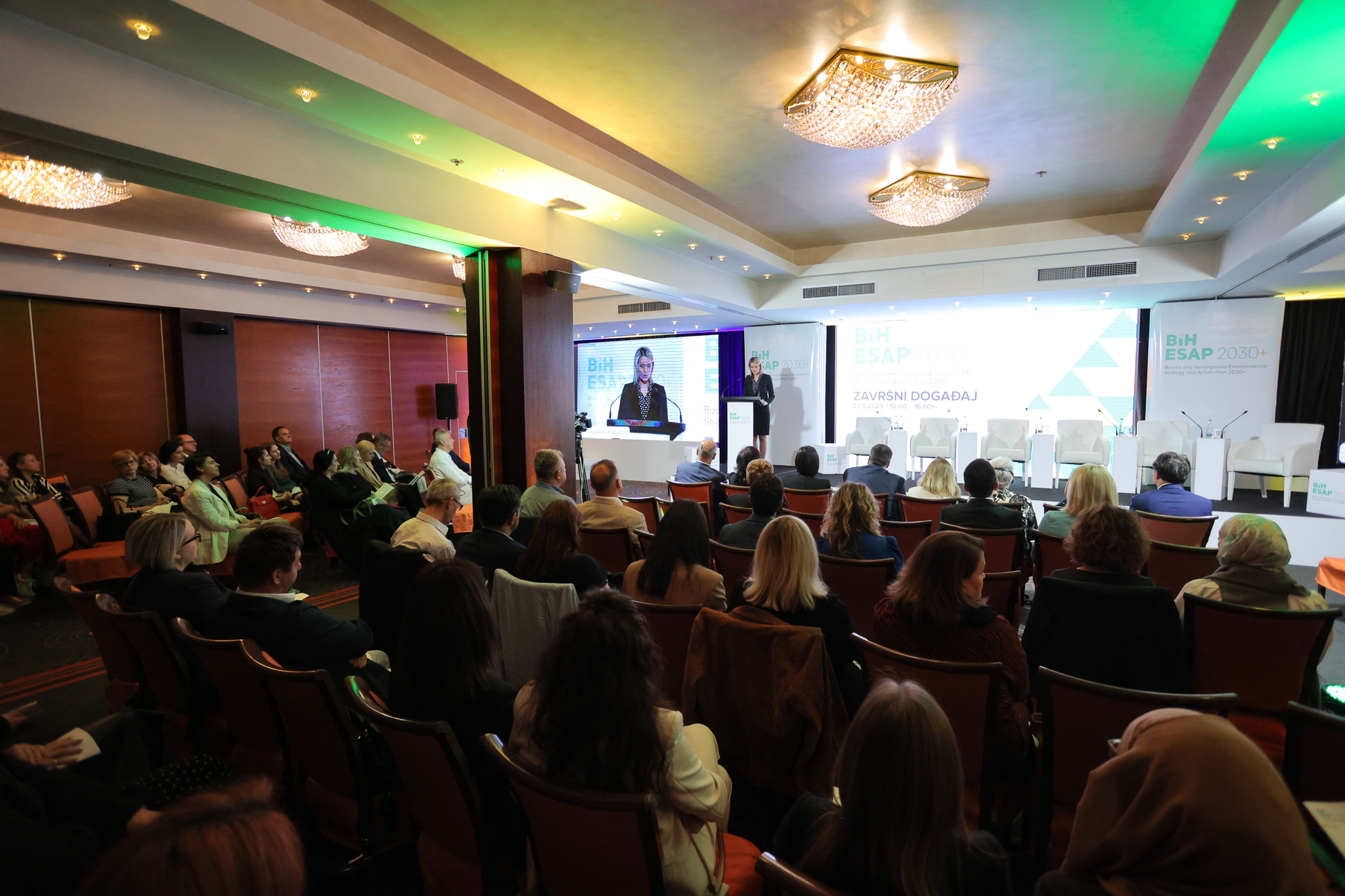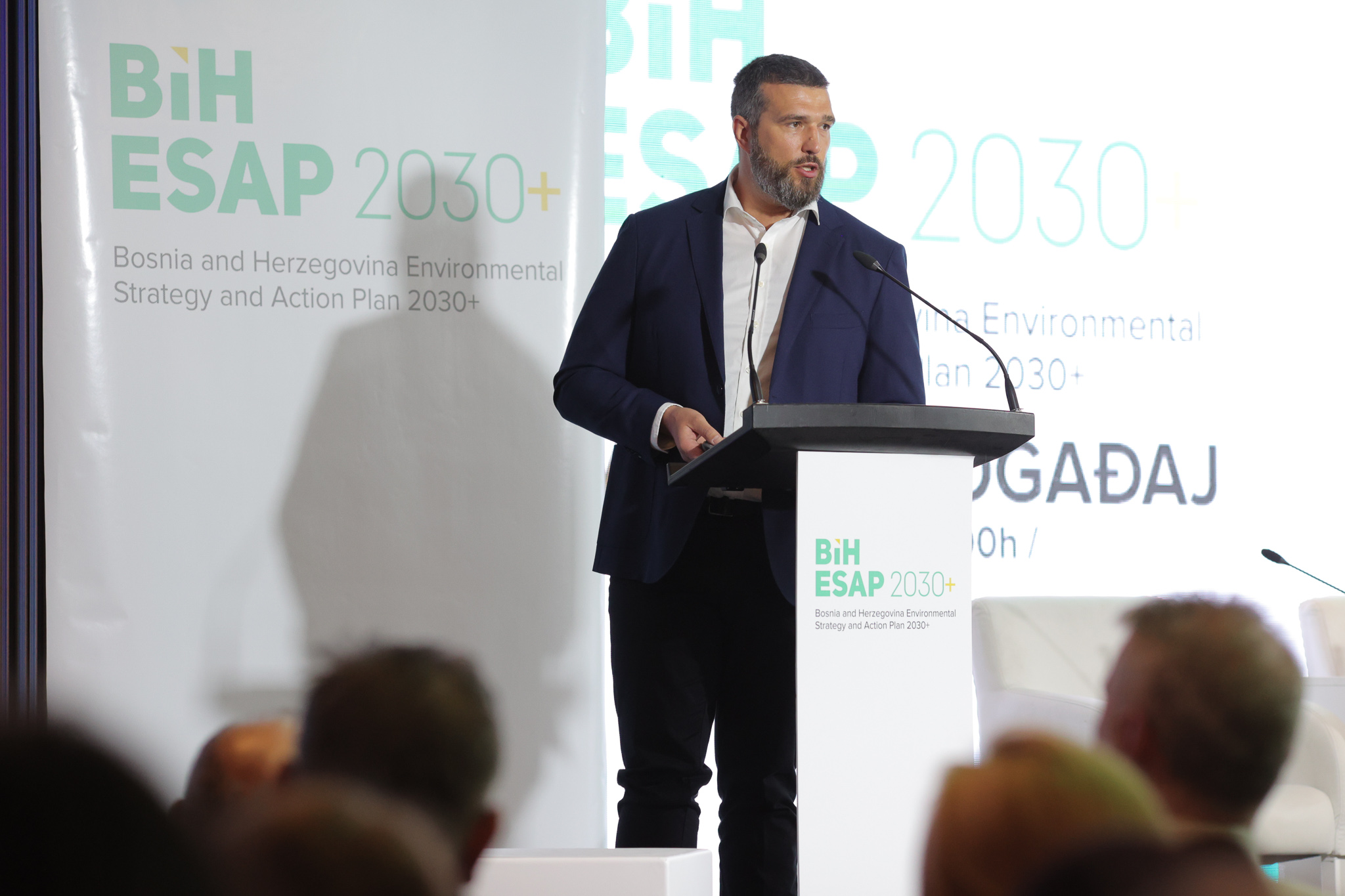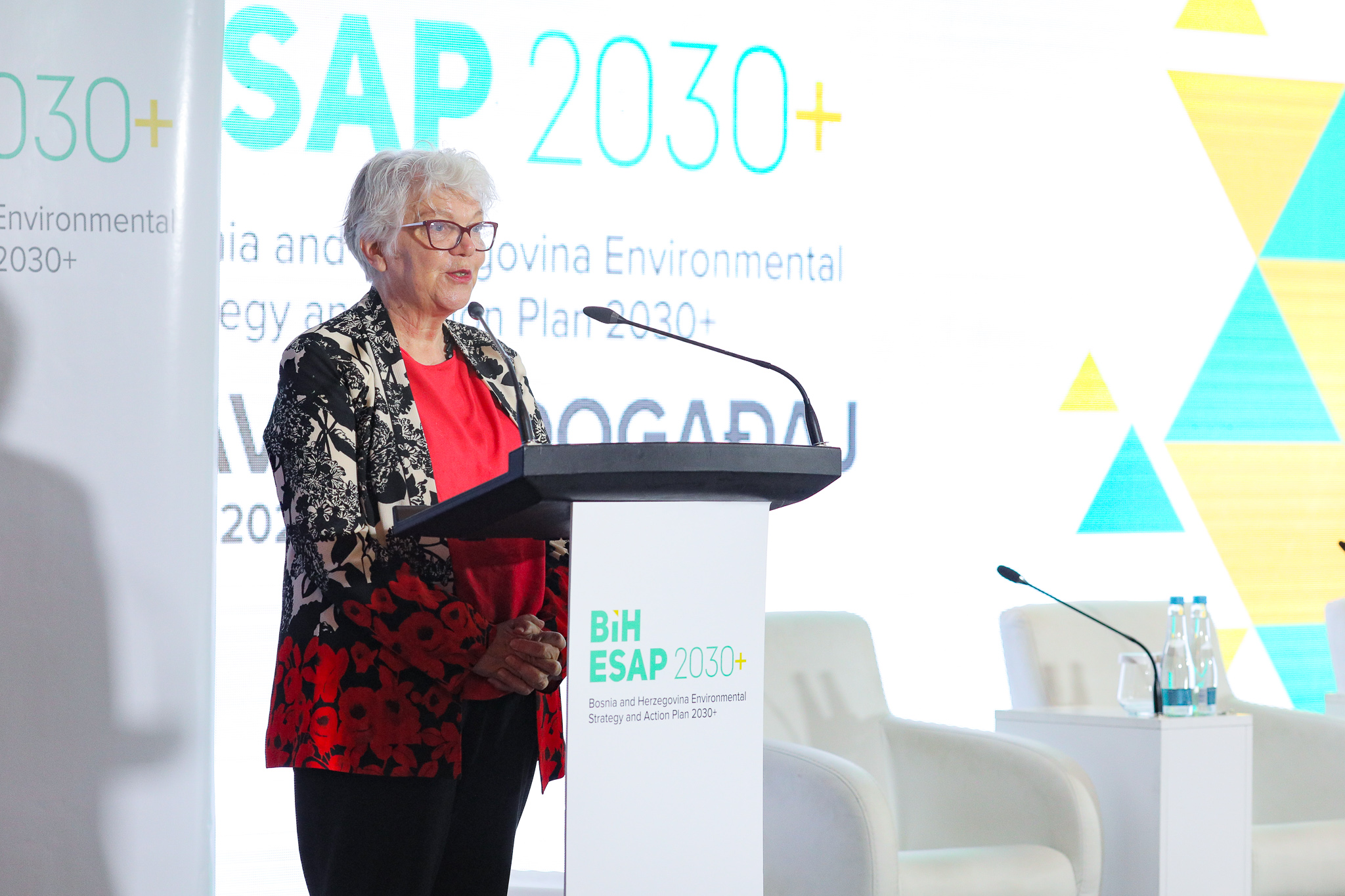After three years of active preparations, Bosnia and Herzegovina´s (BiH) countrywide Environmental Strategy is developed and going through adoption procedures.
The project Development of the Environmental Strategy and Action Plan of Bosnia and Herzegovina (BiH ESAP 2030+) as a supporting process of creating the BiH-wide environmental strategy was carried out by the Stockholm Environment Institute (SEI), an international independent research organization, with the support of the Embassy of Sweden in BiH.
On this occasion, the final event of the BiH ESAP 2030+ project was held today in Sarajevo. The event gathered around 100 participants, and it allowed key stakeholders to look together back on the project and achieved results. Moreover, opinions about the achieved results and expectations were exchanged, as well as lessons learned and challenges of developing a strategic environmental impact assessment and the further implementation of the Strategy.

The issue of the environment is the issue of all citizens of Bosnia and Herzegovina
The content of the BiH Environmental Strategy includes seven EU environmental policy areas: water management, waste management, biodiversity and nature conservation, air quality, climate and energy, chemical safety and noise, sustainable resource management and environmental management. The thematic areas comprehensively covered the main elements of the EU environmental acquis while also corresponding with the sectoral management structures that already exist within BiH.
The development of the BiH Environmental Strategy was based on a participatory approach. This means that a minister-level steering board, assistant minister-level policy groups and 28 working groups, including around 660 participants from the public sector, academy, civil society organization, the private sector, but also the general public, were involved in the creation of the Strategy. Working groups were led by local lead experts who connected working groups across jurisdictions for each thematic area.
“Along with experts from Bosnia and Herzegovina, international experts from leading organizations dealing with environmental issues also supported the process. It was the first time in Bosnia and Herzegovina to use participatory approach to create a strategic document in this broad scope. This allowed for a genuine participatory approach providing the project with expertise and support from all parties involved and bringing the ownership of the process success to the hands of local people”, said Bernardas Padegimas, project manager at SEI, leading the BiH ESAP 2030+ project.

In total, 147 working group meetings led by local lead experts were held. The work continued online even when the personal meetings were limited due to Covid-19. Also, the Strategic Environmental Assessment (SEA) was undertaken to ensure that the proposed environmental strategy integrates all relevant environmental, socio-economic and sustainability considerations at the early stage of their development.
Since the current status of the environment and the required improvements are closely related to issues of gender equality, social equality and poverty (GESEP), the project team was continuously working on integrating the GESEP component in BiH ESAP 2030+, which was one of the pioneering endeavors, when it comes to strategic documents in the area of environmental protection in BiH.
“Adopting such an approach was a way to work towards “leaving no one behind,” a vital principle of the 2030 Agenda for Sustainable Development”, added Padegimas.
As part of the BiH ESAP 2030+, coherent environmental strategies and action plans for the level of the Federation of BiH, Republika Srpska and Brčko District were developed, and during 2022 these strategic documents were adopted by the relevant authorities. The adoption of coherent strategies made it possible to compile the Environmental Strategy of Bosnia and Herzegovina 2022-2032 which is now going through adoption procedures.
The BiH Environmental Strategy is an important contribution to progress in the process of BiH accession to the EU
In December 2022, Bosnia and Herzegovina was granted candidate status for EU membership. As part of the candidacy process, Bosnia and Herzegovina must continue harmonizing its policies with the EU acquis. This includes harmonizing the environmental policy and ensuring that BiH follows the same standards as other member states, and that it can fully participate in the EU’s environmental policy.
“Once adopted, the first countrywide Environmental Strategy will be a key tool for the relevant authorities in Bosnia and Herzegovina to improve the environment and an important contribution to the EU accession process and the achievement of the goals of the Green Agenda for the Western Balkans, Agenda 2030 and the Paris Agreement. Also, which is very important, it will contribute to the health and well-being of the country’s population. Sweden, as a country that has been contributing to sustainable development and environmental issues at the policy level for decades, provided strategic support to the creation of BiH ESAP 2030+. We appreciate the commitment of all levels of government in Bosnia and Herzegovina who contributed to the creation of the BiH Environmental Strategy. As currently the largest bilateral donor in the field of environment and climate change in Bosnia and Herzegovina, environmental protection will remain Sweden’s priority,” said Eva Gibson Smedberg, Head of Development Cooperation at the embassy of Sweden in Bosnia and Herzegovina.

The BiH ESAP 2030+ provides a long-term planning framework, allowing for coherent environmental practices and actions across BiH. It will be a critical tool for relevant authorities to reach environmental sustainability and improved citizen health and well-being for current and future generations across BiH.






